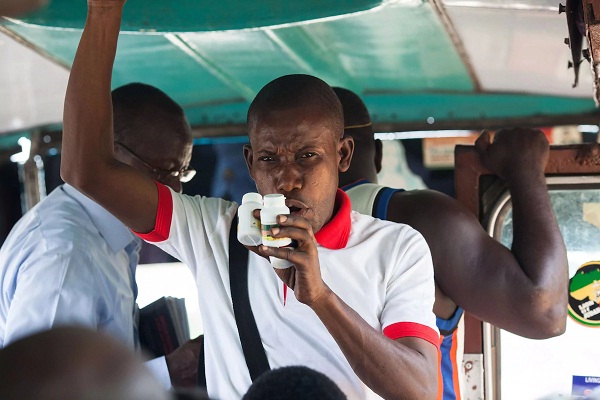 In Ghana, the informal transport system, known as "trotros," is an essential mode of public transportation, ferrying commuters across cities and towns. However, an alarming issue has surfaced within this otherwise vital system - the sale of medicines in trotros. Peddling medications by unauthorized individuals in these public vehicles has raised significant concerns regarding public health and safety. I shed light on the dangers of medicines sold in trotros and highlights the urgent need for regulatory measures to protect the well-being of passengers and the general public.
In Ghana, the informal transport system, known as "trotros," is an essential mode of public transportation, ferrying commuters across cities and towns. However, an alarming issue has surfaced within this otherwise vital system - the sale of medicines in trotros. Peddling medications by unauthorized individuals in these public vehicles has raised significant concerns regarding public health and safety. I shed light on the dangers of medicines sold in trotros and highlights the urgent need for regulatory measures to protect the well-being of passengers and the general public.Unregulated Medicine Peddling:
The unregulated sale of medicines in trotros poses a severe risk to public health. Individuals without proper training or qualifications often sell these drugs, resulting in the distribution of medications without appropriate dosage instructions, potential side effects, or proper storage guidelines. Such uncontrolled dispensing of medicines can lead to adverse reactions, drug interactions, or even exacerbation of health conditions.
Counterfeit and Substandard Medications:
The issue of counterfeit and substandard medicines is prevalent in Ghana, and the sale of such products in trotros further perpetuates this problem. Passengers purchasing medications from unscrupulous vendors in these public vehicles may unknowingly receive counterfeit or substandard drugs, compromising their health and well-being.
Lack of Expertise and Professional Guidance:
Medicines sold in trotros are often dispensed by individuals lacking medical expertise or professional knowledge. Without the guidance of trained healthcare professionals, passengers may not receive appropriate advice on proper usage, potential side effects, or drug interactions. This absence of expert guidance can lead to serious health consequences and may hinder individuals from seeking proper medical care when needed.
Legal and Regulatory Oversight:
The sale of medicines in trotros is in clear violation of existing legal and regulatory frameworks governing the distribution and dispensing of medications. The Ghanaian government and relevant authorities must address this issue urgently by enforcing existing laws and implementing strict penalties for those found selling medicines illegally in public vehicles.
Public Awareness and Education:
Raising awareness about the dangers of purchasing medicines from unauthorized vendors in trotros is essential. Public health campaigns and educational initiatives should be launched to inform passengers about the potential risks and consequences associated with buying medications from unregulated sources.
Strengthening Pharmacy Regulation:
To combat the issue effectively, authorities must also focus on strengthening pharmacy regulation and monitoring systems. Ensuring that pharmacies adhere to professional standards and that licensed pharmacists dispense medications will help curb the proliferation of unauthorized medicine sales in public transport.
The sale of medicines in trotros poses a significant threat to public health and safety in Ghana. The lack of regulation, expertise, and proper guidance in dispensing medications within these public vehicles calls for immediate attention from the authorities. Stricter enforcement of existing laws, public awareness campaigns, and a focus on strengthening pharmacy regulation are essential steps toward safeguarding the well-being of passengers and the public at large. Addressing this critical issue will not only protect individuals from potential harm but also contribute to a safer and healthier society in Ghana.
Tags
The Commentary
